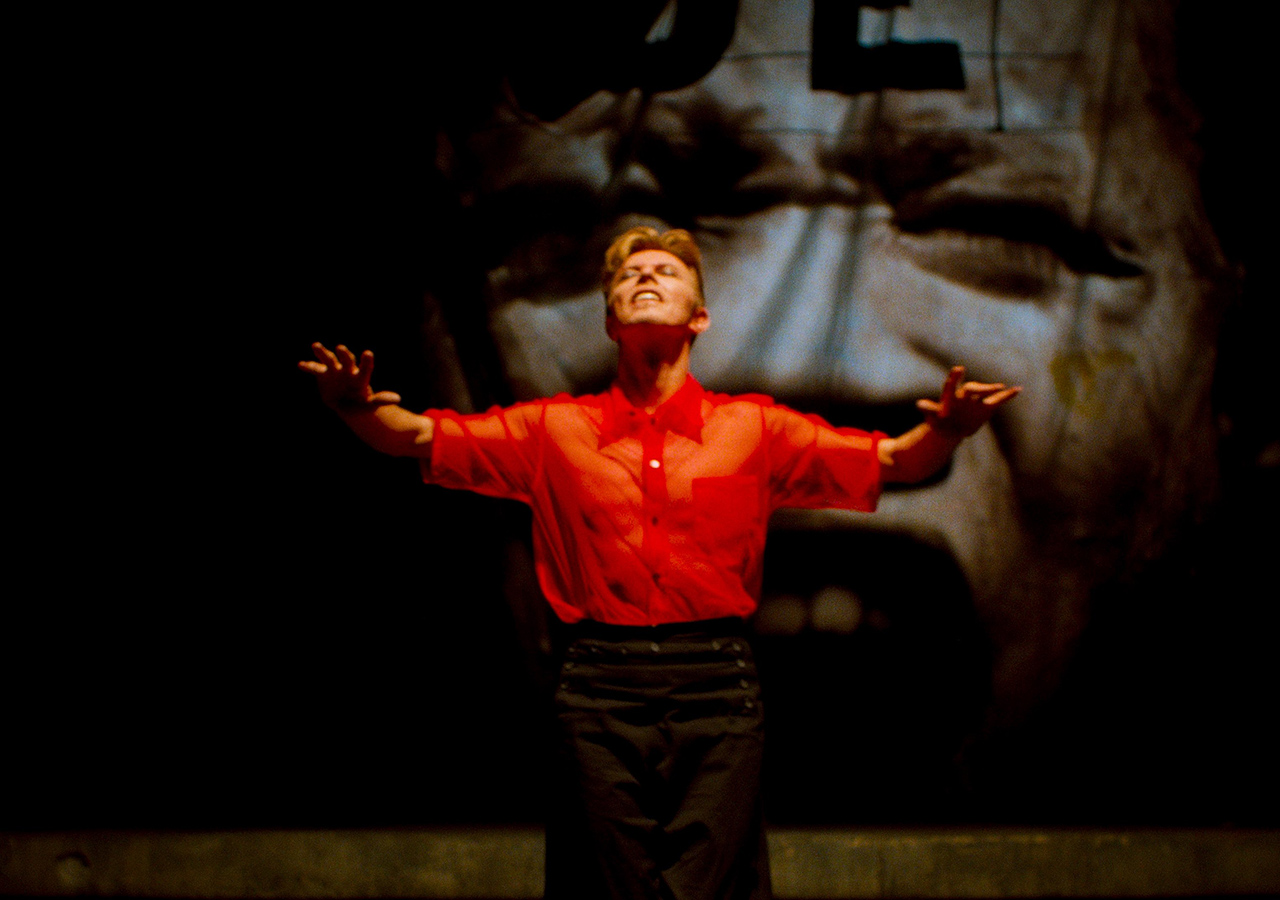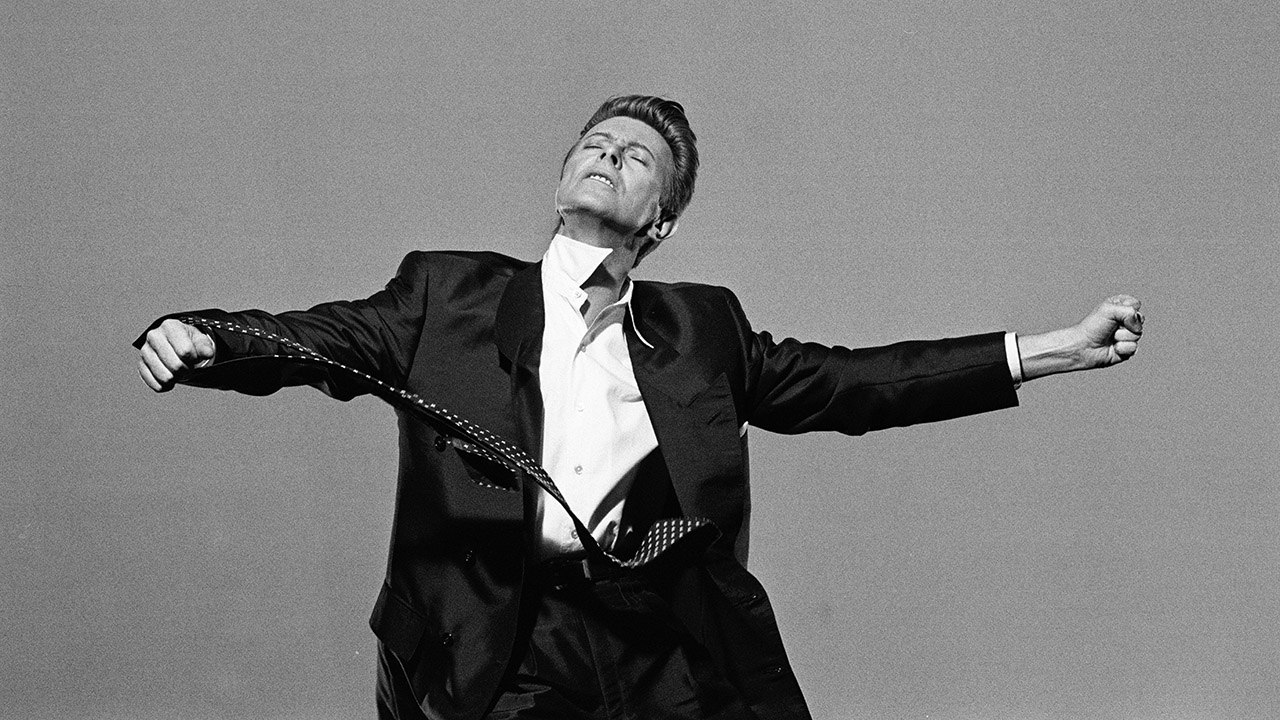Everything

Ziggy Stardust, Aladdin Sane, Halloween Jack, The Thin White Duke, The Soul Man, The Blind Prophet… For all of the continually evolving personas that marked the various chapters of David Bowie, the truth remains that at his core, very few people knew the real David Robert Jones. In fact he openly stated that his fans – adoring teens who worshipped the musician as the embodiment of the living saint of a new age – had never actually seen the real him. And that’s how he preferred it.
So if you think filmmaker Brett Morgen’s latest opus, Moonage Daydream, will package Bowie up into something dissect-able then you’re missing the point of both Bowie’s life and art and Morgen’s work.
In fact, Morgen will be the first person to tell you that the 140-minute psychedelic audio and visual expedition isn’t a documentary in the traditional sense. It’s perhaps not even a documentary at all. With its pastiche of 20th century art and culture that zigzags through cuts of interviews, never-before-seen performances alongside Bowie’s own experimental videos and visual arts, Moonage Daydream feels like an extended music video that just happens to be a deep dive into the semiotics of the most enigmatic artists the world has ever seen.

“In the first seven minutes, you kind of have no idea as a viewer where this is going. It’s completely mysterious, but hopefully sublime and fascinating,” explains Morgen.
Sitting in one of the suites in Sydney’s QT Hotel, the 53-year-old filmmaker seems to have borrowed one of Bowie’s most recognisable looks for his interview – a bright turquoise suit and hot pink tie straight out of the ‘Life On Mars’ music video.
Asked if he thinks there was ever a point where Bowie perhaps let his mask slip and revealed the real him, Morgen says it’s less about finding the real Bowie and more about who was closest to his true nature.
“The one character who’s never really discussed as a character, that I found to be most closely aligned with David Jones, was The Professor, which is the character that I refer to as the sort of ’77, ’78 Bowie when he was touring the Isolar II tour in promotion of ‘Heroes’.”
Having already clocked up a standing ovation at the recent Cannes Film Festival, Morgen had arrived in Australia to launch Moonage Daydream at the Melbourne International Film Festival and a limited release at VMAX in Sydney, ahead of its official cinematic release on September 15.
So how would Morgen define his work?
“I wanted to create a new type of genre that was less information based,” he explains.
“I think that the first seven minutes of the film were very critical for establishing a covenant with the viewer, in terms of how information would be presented in the film…I would say that Bowie is mysterious, sublime, and fascinating. So what’s being orchestrated in the first seven minutes, and we can almost extend that through the Ziggy section, is I’m basically trying to create a parallel experience to the experience I’ve had with Bowie’s music…”

This parallel was both literal and figurative for Morgen. The director mimicked the cut-up practise that Bowie used early on in his career, which is mentioned in the film, to construct the lyrics of his songs, cutting and mixing lines on pieces of paper.
Between interviews and live performances, Morgen intersects flashes of cinema (Nosfuratu, Metropolis, Rugrats: The Movie, No Time To Die), alongside Bowie’s own experimental video and shots of his paintings. Layered over the top of all this are soundbites of Bowie discussing his world view and how art is the vehicle he uses to both understand it and break it apart.
These jarring juxtapositions are a clever deceit on behalf of Morgen as it highlights perhaps an often overlooked element of Bowie’s career. Throughout his 54-year long career as an artist – from musician to actor, painter – Bowie was a mirror of the world he lived in.
“David is really a cultural anthropologist, who rather than writing in textbook academia, was putting his observations into music and art,” says Morgen. “I think his senses were attuned to frequencies and vibrations that most of us can’t access. I don’t think of him as a futurist, I see him as someone who was able to timestamp, as he says, each moment of his life through his art.”
While still following a relatively linear plotline of Bowie’s incarnations, starting with Ziggy Stardust and wrapping at the release of his final album ‘Blackstar’ and Bowie’s final incarnation as The Blind Prophet, Morgen lets each phase of Bowie become a template for contemplation, almost like a Rorschach test made up of non-sequiturs. Depending on what Bowie meant to you, your experience of watching Moonage Daydream is one that remains personal, unique, never the same.
Which is exactly how Bowie would have wanted it.
Moonage Daydream arrives in selected cinemas September 15.